Hair loss may seem somewhat inevitable as we age, but many young men also struggle with premature hair thinning and loss. While we can’t stop time or biological aging, and we can’t change other significant factors such as our genetics, we can improve the health of our hair and prevent hair loss by ensuring we are eating a well-rounded, balanced, nutrient-dense diet full of foods for hair growth.
Related Guides
Hair growth is contingent upon getting an adequate total caloric intake. Prolonged dieting, especially in conjunction with insufficient protein consumption, causes the body to shut down hair cell turnover. Additionally, there are several other nutrients vital for keeping hair follicles healthy and stimulating new hair growth, such as biotin, zinc, vitamin C, and selenium. If you’ve been anxiously noticing a thinning of your lustrous locks, or are eager to stave off a receding hairline, make sure to fill your plates with the following foods that can prevent hair loss.
Spinach
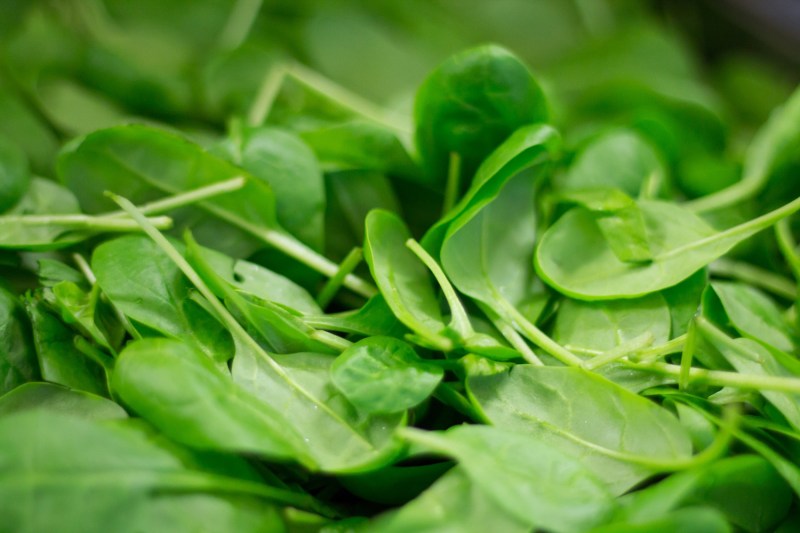
Spinach is nutrient-dense, offering many hair-supportive compounds such as iron, folate, vitamin c, magnesium, and potassium. One cup also contains over 50% of the RDI for vitamin A, which aids in the production of sebum, the natural hair conditioner that prevents it from drying, cracking, splitting, and dying.
Eggs
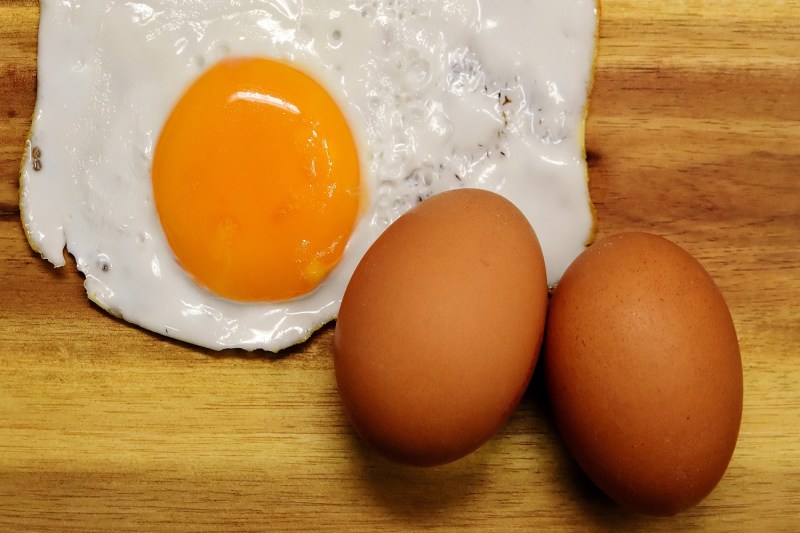
Eggs are a great food for hair growth and loss prevention because they are excellent sources of protein and biotin. Protein is necessary to form collagen and keratin, the structural proteins in hair. Biotin is critical for preventing hair loss, and deficiency in this nutrient is associated with thinning hair. The yolks also contain iron and vitamin D, which encourage proper circulation, and thus nourishment, to prevent hair loss. Finally, eggs are a source of L-lysine, an amino acid shown to reduce hair loss.
Soybeans
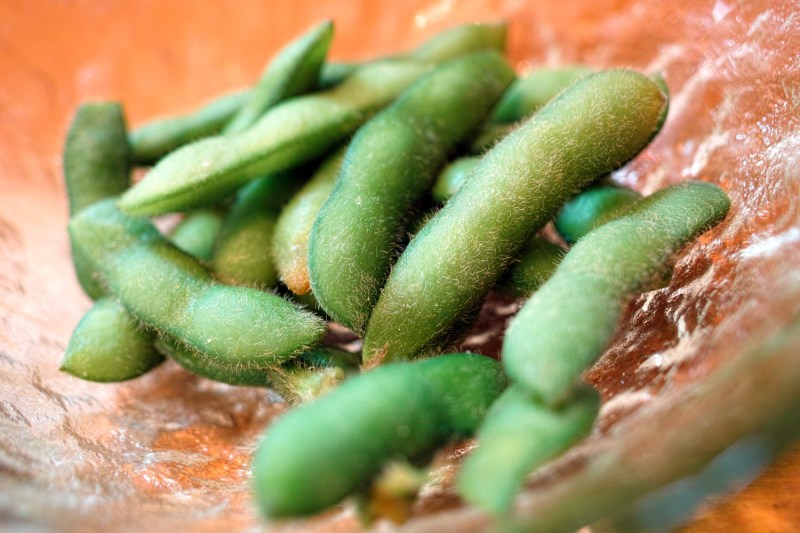
Soybeans, tofu, edamame, tempeh, and soybean oil contain the phytoestrogen genistein, which studies have found to significantly increase resistance to alopecia. Soybeans are also a good source of the amino acids necessary to form new hair cells. For example, they contain 161% of the RDI for L-cysteine, which has been shown to increase hair density and minimize hair loss.
Pumpkin
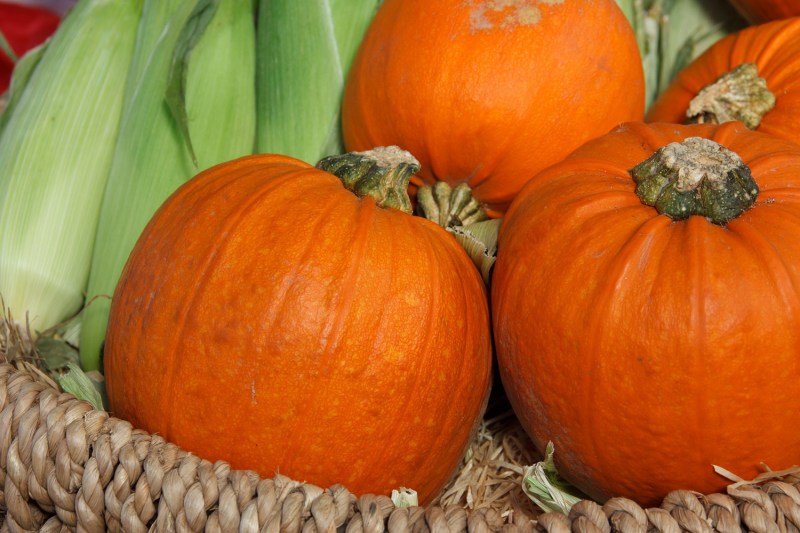
Vitamin A is known to improve hair and skin health because it increases the production of sebum, the natural oil that your pores and hair follicles secrete to nourish and moisturize your hair and scalp. Pumpkin is one of the best sources of beta-carotene, which the body turns into vitamin A. The seeds are also a wonderful source of hair-nourishing fatty acids and zinc.
Avocado
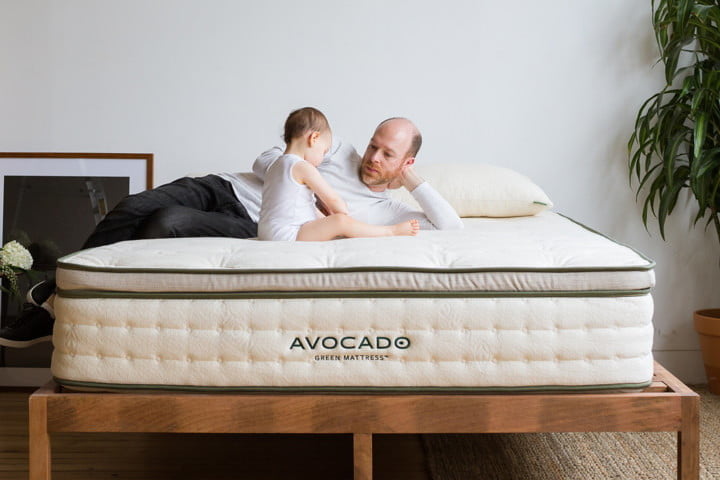
Avocados contain the essential fats necessary for hair growth. They are also energy-dense, nutrient-dense food, meaning that they do have a lot of calories but also a lot of valuable nutrients. Calories often get a bad rap because, in excess, they cause weight gain, but because hair follicle cells are among the most “rapidly dividing cells in the body,” if you’re in a prolonged calorie deficit, hair thinning and loss is one of the first physical manifestations of note. Therefore, because low energy availability (from dieting or inadequate calorie intake) is associated with hair loss, if you struggle to meet your caloric needs, it’s helpful to add energy-dense foods like avocados and nuts to your plate.
Fatty Fish
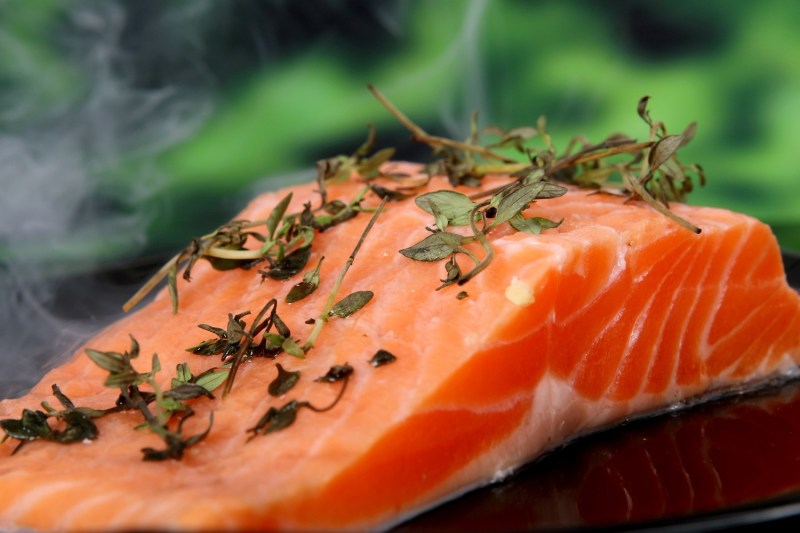
Salmon, mackerel, herring, sardines, and other fatty fish provide the omega-3 fatty acids necessary to create and maintain cell membranes. Research has found that these essential fatty acids can reduce hair loss. For example, arachidonic acid has been shown to stimulate hair follicle proliferation and hair growth. Fatty fish also contains vitamin D, which is essential in the hair growth cycle and can stimulate hair growth and prevent hair loss. A deficiency in vitamin D is associated with the hair loss condition, alopecia.
Walnuts
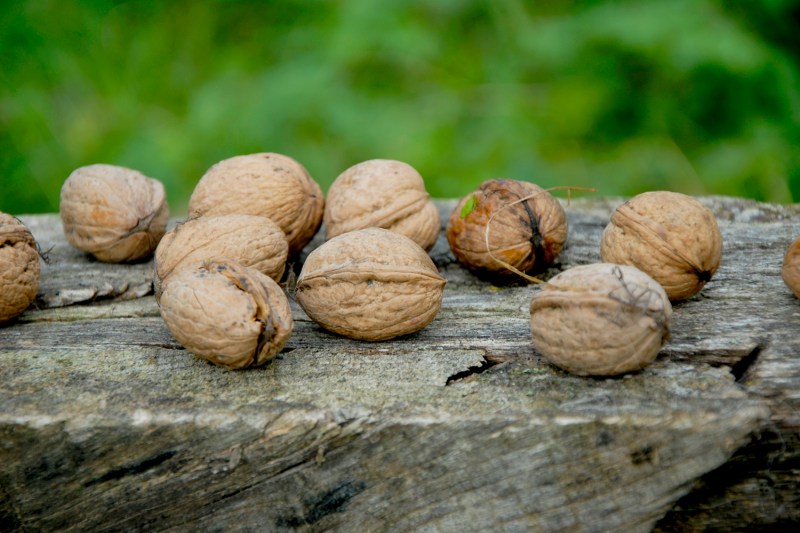
All nuts provide key nutrients to prevent hair loss, like essential fatty acids, vitamin E, zinc, and magnesium. Walnuts are especially rich in vitamin E, which is an antioxidant that is critical for healthy cell membranes. The omega fats in nuts will hydrate and nourish your hair follicles and increase sebum production to prevent hair from drying and thinning. Walnuts also contain selenium, which is an important nutrient in initiating new hair growth and hair follicle development.
Red Peppers
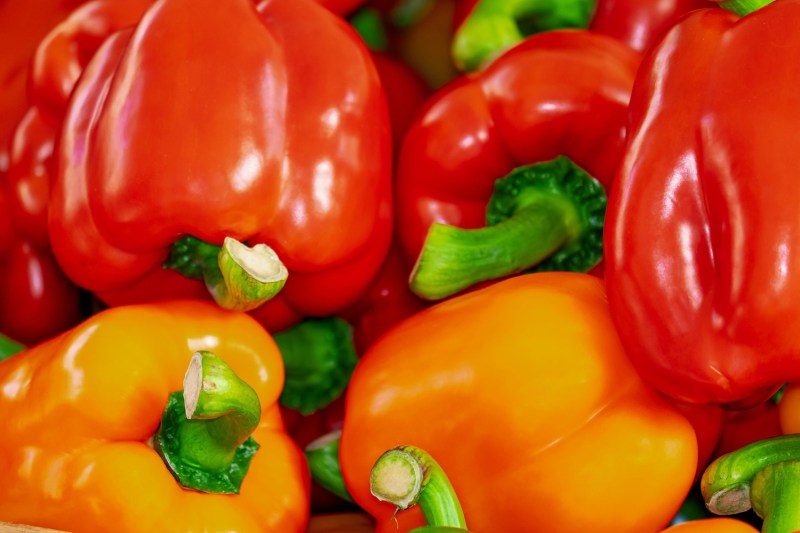
Most fruits and vegetables offer some vitamin C, but red peppers are an especially potent source. This nutrient is known to be a powerful antioxidant that neutralizes free radicals in your body to prevent oxidative damage to your cells and premature cellular aging. It also stimulates collagen production, the structural protein critical for hair, skin, and nail growth. Vitamin C improves blood vessel function, increases blood flow to the scalp, and stimulates the synthesis of vascular endothelial growth factor (VEGF), which regulates hair growth and follicle size. Lastly, it aids the absorption of iron, which is also necessary for healthy hair and circulation. Other good sources are citrus fruits, kiwi, and berries.
Seeds
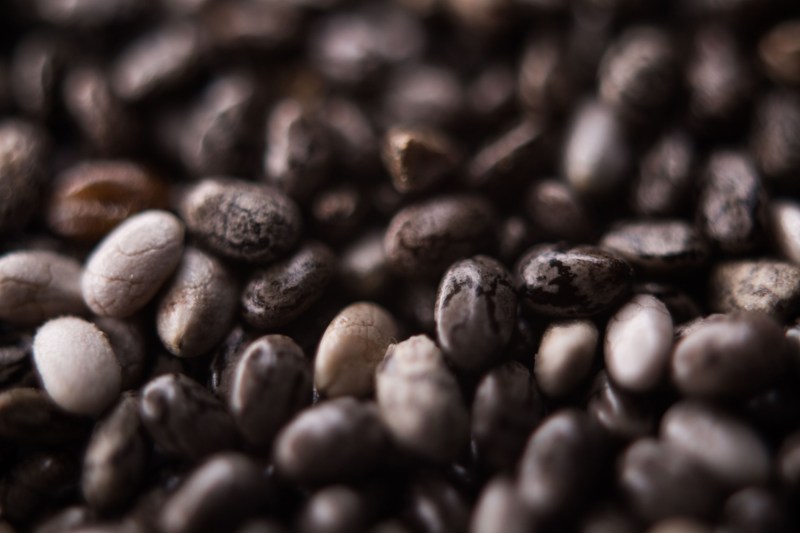
Seeds, such as sunflower, pumpkin, and chia, contain essential fatty acids, zinc, and amino acids like L-cystine, and selenium, which are all nutrients necessary in the hair cycle. Sunflower seeds in particular are a great source of pantothenic acid (vitamin B5), which has been shown to increase blood flow to the scalp, aid hair growth, and prevent hair loss.3
Beets and Beet Greens
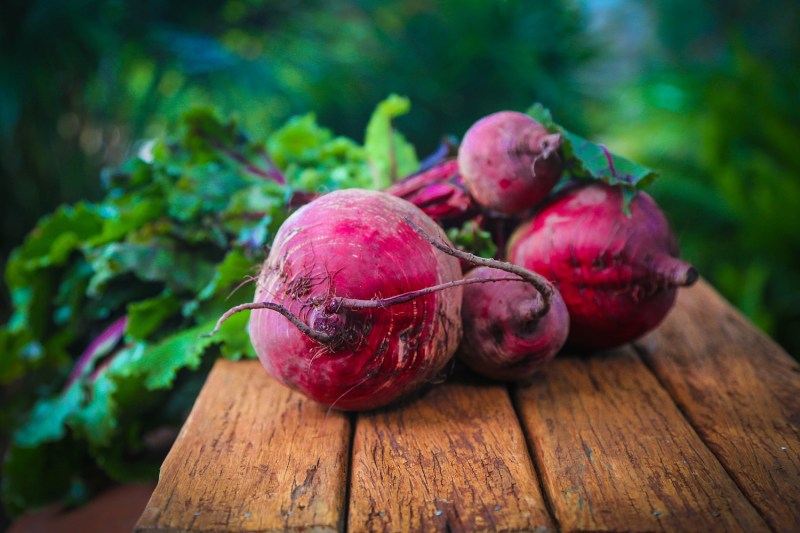
Beets are one of the best sources of nitrates. Once consumed, the body breaks down nitrates to nitric oxide, a compound that acts as a vasodilator, increasing blood circulation and perfusion. The result is increased blood flow, oxygenation, and nutrient delivery to your cells, including the hair follicles in your scalp, helping to nourish them for optimal hair growth. Both the beets themselves and the green tops are packed with phytonutrients, micronutrients, and antioxidants as well.
Chicken
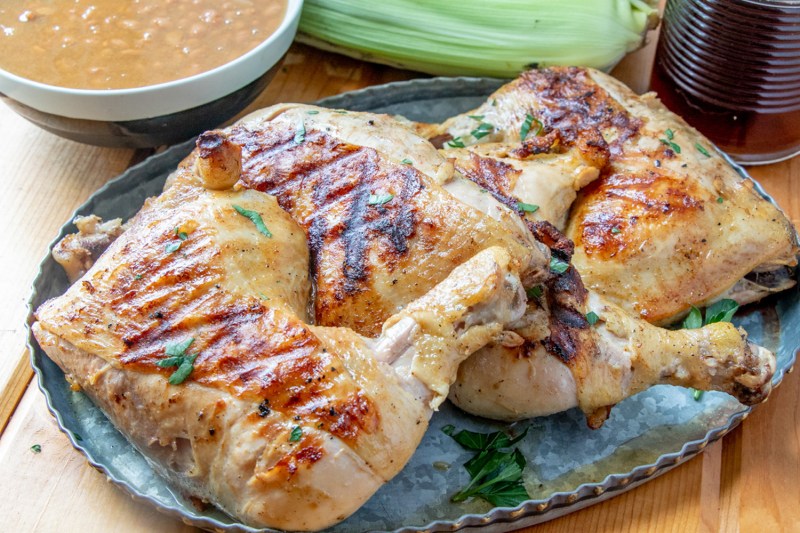
Chicken breast contains 200% of the RDI of L-cysteine, which is vital for hair health. It also contains 100% of the RDI of niacin, a vitamin that, which is deficient, is associated with hair loss.3 Lastly, chicken is the best source of arachidonic acid, an omega-6 fatty acid that can stimulate hair growth.
Oysters
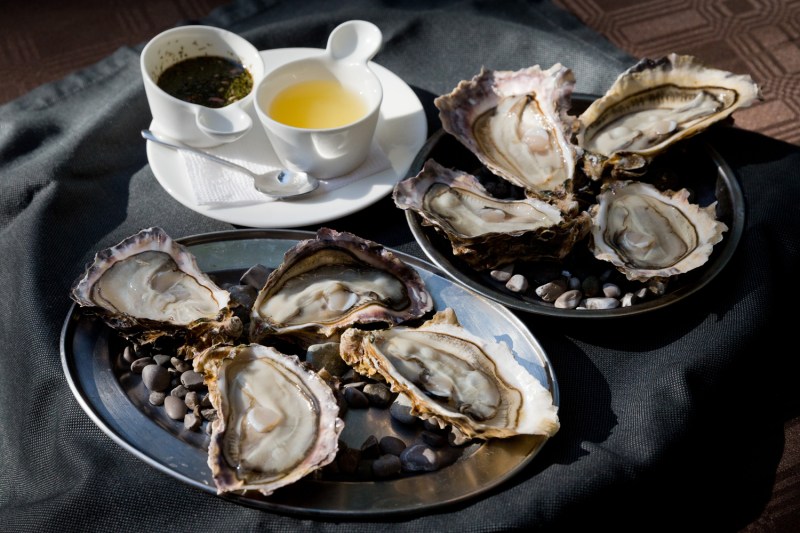
Oysters are one of the best sources of iron, a nutrient critical for hair follicle production. They also earn an accolade for being one of the best dietary sources of zinc. Zinc plays a key role in protein production and hair follicle cell differentiation, and deficiency is associated with hair loss.
Ginseng
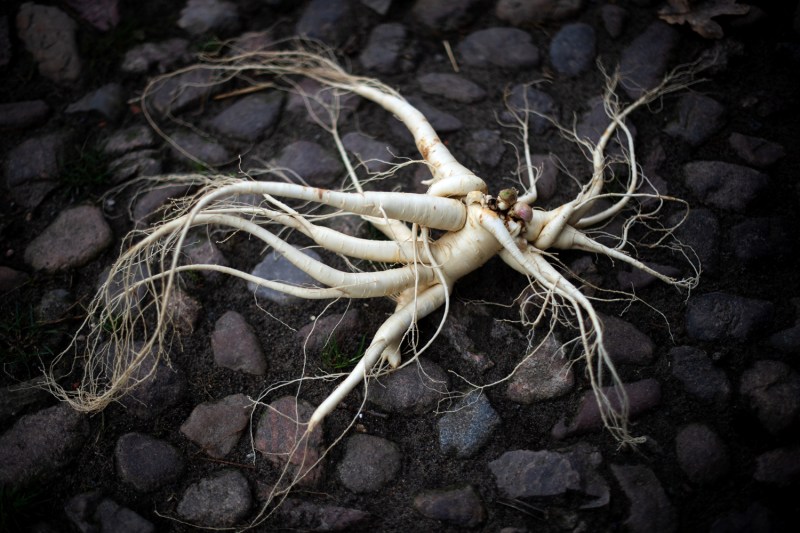
Ginseng is an herb that’s long been used in Chinese medicine for its anti-inflammatory properties. It can be eaten raw, as a dry herb, or steeped as a tea. It contains phytochemicals, namely ginsenosides and gintonin, that have been shown to stimulate hair growth. Studies cite that it can both prevent the death of current hair follicle cells and increase the production of new ones, minimizing hair loss and encouraging new growth.

Can food really prevent hair loss?
Yes. Food contains essential vitamins and nutrients that keep the entire body functioning and thriving, and that includes hair, skin, and nails. Foods for hair growth include items packed with vitamin C, zinc, iron, and folate. That said, tons of factors go into how your hair looks and when you lose it, including overall health and genetics. If you’re concerned about your hair loss, speak with a dermatologist. Should dietary tweaks be suggested, a dietician can help you craft the best meal plan for your overall health and hair goals.



